After more than 2 months of operation, the two-level local government has created a strong wave of innovation from big cities to remote areas. Smart AI assistant models or "home certification" services are proving that when empowered, localities can innovate beyond expectations to better serve the people.
“New breeze” from local creativity
Da Nang City is one of the pioneering localities in implementing many creative solutions in operating two-level local government. In order to support mountainous and border communes, the Department of Home Affairs of Da Nang City has dispatched 15 highly qualified officials from specialized departments such as government building, administrative reform, civil servants, public employees, etc. to work directly in 19 communes. This team includes officials with master's degrees in economics , law, public policy, human resource management and experts in information technology and computer science.
In parallel, the Department of Agriculture and Environment of Da Nang City also mobilized 75 officials from the Land Registration Office to communes and wards to support the settlement of administrative procedures related to land. These officials not only provide professional guidance but also directly resolve arising problems, ensuring that administrative activities are not interrupted.
In particular, Da Nang has piloted the application of artificial intelligence (AI) to support administrative procedures to expand the model. Tam Ky Ward has officially launched an AI assistant, helping to quickly, consistently and transparently respond to requests from people and businesses. The AI assistant does not replace officials but plays a supporting role, helping to improve work efficiency and reduce pressure on civil servants.
In Lam Dong province, the largest locality in the country after the merger, many unique administrative reform models have also been implemented to create maximum convenience for the people. Since August 26, the province has piloted four administrative reform models including: "Public digital administrative procedures," "One-time paper records," "Paperless records" and "Appointment-free records." Attaching QR codes to 100% of administrative procedures at one-stop departments helps people easily look up information, reduce waiting time and travel costs.
Not stopping at the provincial level, many grassroots initiatives have also been implemented with inspiration. Nam Da commune implemented the model of "Mobile signature certification at home" for the elderly and the disadvantaged, Quang Son commune organized the settlement of administrative procedures at the village cultural house on the second Saturday of every month. Models such as "Mobile working group" in Ta Hine commune or "Listening to people speak" in Bao Loc ward have really created a strong change in the settlement of administrative procedures, especially in remote and difficult areas.
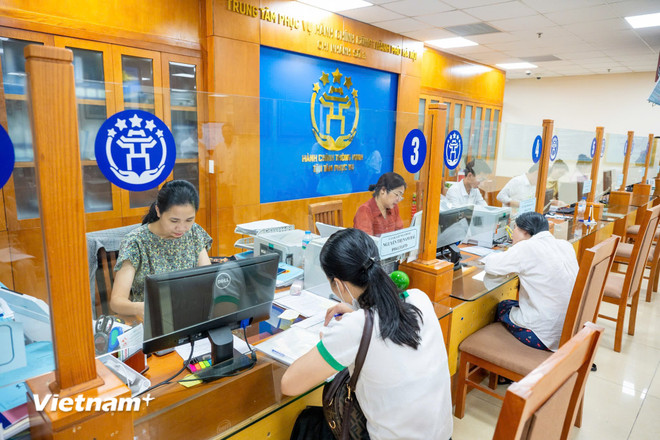
In addition, the telling figures from Dong Nai with the rate of correct and early documents reaching over 99% after 60 days or the synchronous participation of Hai Phong, Ho Chi Minh City, and Bac Ninh in training and rotating cadres further affirm that when empowered and trusted, the grassroots government has the full capacity to create change.
Continue to decentralize and delegate more substantially
Impressive results from localities are vivid evidence, creating momentum for a stronger and more substantial wave of decentralization and delegation from the Central Government.
According to Minister of Home Affairs Pham Thi Thanh Tra, initial statistics have shown a clear shift in power. As of September 15, 741 administrative procedures have been decentralized from the central level to localities, 346 administrative procedures have assigned the authority of the district level to the provincial and communal levels; 298 administrative procedures have been abolished.
More than 6.6 million applications were received online with a 91% on-time processing rate, and more than 3 million online payment transactions with a total value of VND 1,700 billion in just over 2 months (from July 1 to September 15) are impressive numbers, showing that digital infrastructure and people's trust are increasing day by day.
However, there is still a state of decentralization and delegation of power in a formal manner, and some guiding documents are not issued in a timely manner, reducing the initiative of the grassroots.
Therefore, a series of drastic instructions have been issued. Conclusion No. 192-KL/TW of the Secretariat and especially Telegram No. 168/CD-TTg of Prime Minister Pham Minh Chinh have shown the determination to promote decentralization and delegation of power. Telegram No. 168/CD-TTg requires Ministers and Provincial Chairmen to directly inspect, evaluate and take responsibility for the effectiveness of decentralization and delegation of power.
The motto "locality decides, locality acts, locality takes responsibility" is emphasized as a "compass." The Prime Minister requested ministries and branches to continue reviewing the legal system, boldly propose reductions, simplifications and assign more tasks to localities.
Notably, the Prime Minister specifically named the Ministries of Science and Technology; Construction; Culture, Sports and Tourism; Finance; Health; Agriculture and Environment; and Industry and Trade, where the number of administrative procedures under the central authority is still large (over 40%), to urgently promote decentralization and delegation of power. This requirement comes with an important clause that decentralization and delegation of power must be associated with ensuring resources for implementation while simultaneously building effective tools for monitoring and controlling power.
The reform journey continues. The first steps have confirmed the right path. Continuing to delegate power in a substantive manner, along with capacity building and a strict monitoring mechanism, are the solutions to build a creative, honest, decisive and effective administration, meeting the expectations of the people and businesses in the new development stage of the country./.
In Conclusion No. 192-KL/TW on the implementation of the law on decentralization, delegation of power, and division of authority when operating two-level local governments, the Secretariat requested Ministers, Secretaries of Provincial and Municipal Party Committees, and Chairmen of People's Committees of provinces and cities to directly inspect and evaluate the tasks of the Ministry and localities being implemented at the commune and ward levels to provide timely guidance and direction.
The conclusion stated that provincial and municipal Party Committees continue to assess the ability to implement the law on decentralization, delegation of power, and division of authority at the local level to promptly adjust, guide, amend or propose competent authorities to amend and issue new documents in accordance with the roadmap and requirements of the Law on Organization of the Government, the Law on Organization of Local Governments and in accordance with the practical situation. Focus on leading and directing the close, complete, and effective implementation of decentralized and delegated tasks, promptly overcoming difficulties and shortcomings, comprehensively strengthening the commune level, ensuring that the two-level local government operates smoothly and effectively.
Source: https://www.vietnamplus.vn/chinh-quyen-dia-phuong-2-cap-cu-hich-sang-tao-khi-duoc-phan-cap-phan-quyen-post1063451.vnp












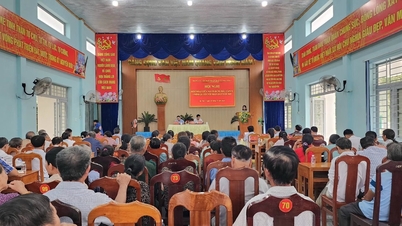



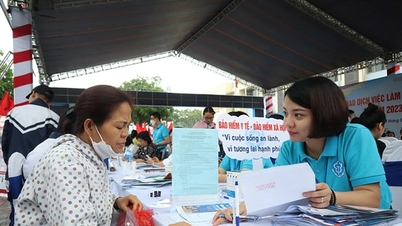

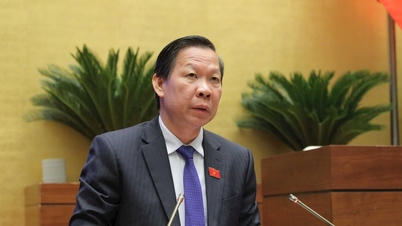







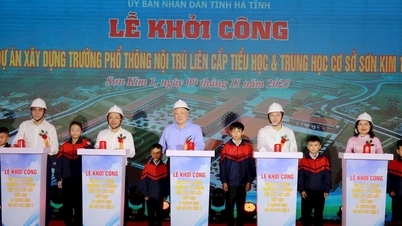
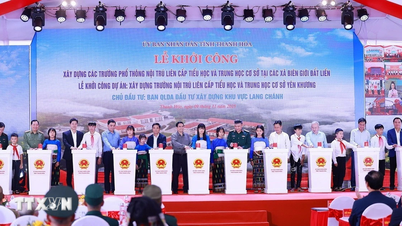





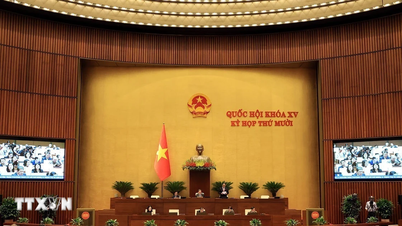


























































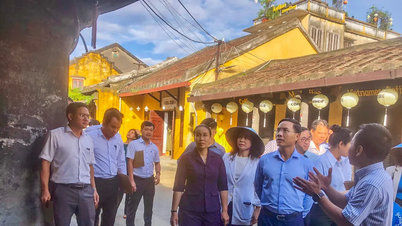








![Dong Nai OCOP transition: [Part 2] Opening new distribution channel](https://vphoto.vietnam.vn/thumb/402x226/vietnam/resource/IMAGE/2025/11/09/1762655780766_4613-anh-1_20240803100041-nongnghiep-154608.jpeg)











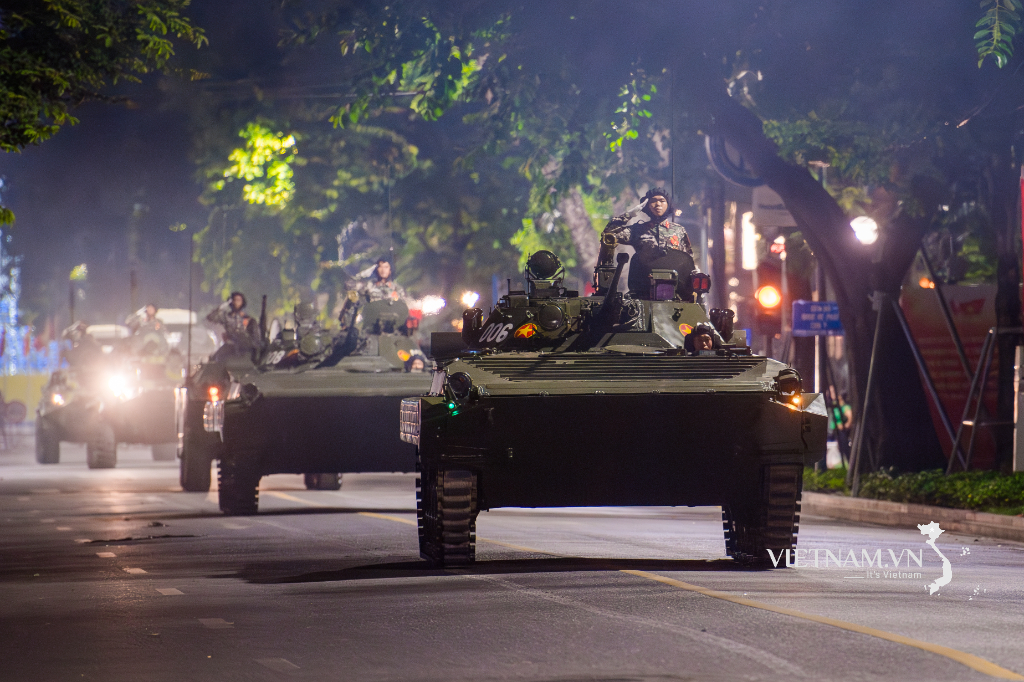
Comment (0)